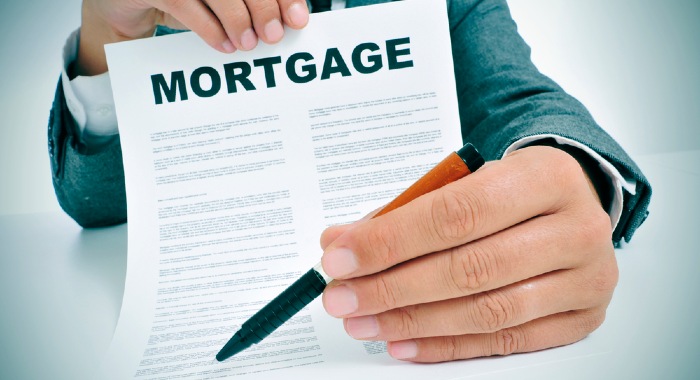If you want to leave a property to someone in your will in the UK, the situation is fairly straightforward.
Taking care of the people we leave behind is important for most of us. Especially if we want to make sure our children are provided for once we are gone.
Our homes are the biggest asset most of us have, so of course we want them to go to the person we want after we have died. The good news is that all property, including land and buildings that are located in the UK can be left to a beneficiary in your will.
However, how straight forward leaving a property to someone in a will is, depends on how you own the property. And if you own the property alone or with someone else.
In this article we will tell you all you need to know about how to leave a property to someone in a will in the UK. The information in this article will cover the laws for England and Wales. Laws in Scotland or Northern Ireland may differ.
This article is intended only for information and doesn’t constitute legal advice. Please speak to a legal professional before taking action.
Sole ownership, tenants in common or joint tenants

In the UK, there are three types of ownership for a property when it comes to who owns a house:
- Sole ownership
- Tenants in common
- Joint tenants
Before you can leave a property to someone in a will you have to establish how the property is owned, because it will make a difference.
Sole ownership
This means that one individual owns the property. If you are the sole owner, you can leave the property to someone in your will without any complications.
Once you have passed away, the ownership will be transferred to the beneficiary of the will.
Tenants in common
If you own the property with other people as tenants in common, then you only own part of the property. This could be 50%, more or less. The share you own will depend on the agreement that was made when the property was purchased.
You can leave your share in the property to anyone you want in your will. The other tenants don’t have to agree to this, because you can do what you want with the share of the property you own.
Joint tenants

If the UK property that you own is as a ‘joint tenant’, which is what most married couples and also civil partners tend to do, then you will have a half share in the home. But unlike with “tenants in common” ownership, you can’t leave your share in the property to someone in your will.
That’s because this share will automatically pass to the co-owner on your death. They will then be able to leave the property to someone in their will, if they wish so.
This is the situation we find ourselves in.
A further complication will be added if both of you die at the same time. Deciding who died first and whose will to enact can be difficult in those situations.
To combat this, our solicitor inserted a clause to say that the other person will be treated as having died before the other unless they outlive them by 30 days or more. This helped simplify the instructions of our will, and you would be well advised to seek similar advice.
If you own your property as jont tenants but want to leave your share to someone in your will, you can change ownership to “tenants in common”. However, this will need the agreement of the other joint tenant.
Under this arrangement, you will each own 50% of the home, and you could then gift your 50% to who you like in your will, for example, leaving your share to your children.
As we do not have any children of our own, we decided to leave our will as ‘joint tenants’ as we were more than happy for our property to pass wholly to the other person. But of course, your situation may be different.
So the first step in our guide about how to leave a property so someone in your will in the UK is to establish the type of ownership. You can then seek the advice of a legal professional who can tell you how to proceed in your situation.
Property with a mortgage

You should be aware that if your property still has an active mortgage, the person who inherits it will be responsible to pay off the mortgage. How this is done will depend on the lender.
They can ask for the debt to be paid in full. And because they own part of the property through the mortgage arrangements, they can ask that the house is sold to pay back the outstanding amount.
If the beneficiary of your will is able to make the monthly payments and the lender is happy with this, the mortgage can be transferred. However, they will assess the beneficiary’s ability to repay the outstanding mortgage like they would with any mortgage application.
But if you don’t want to burden the person you want to leave the property to with these costs, you can take out a life insurance that covers the outstanding mortgage on your home. This will allow you to pass on the property debt free.
For tenants in common, a curious situation could occur if they bought the house with a joint mortgage. For example, if a couple bought a house and are both named on the mortgage to be able to raise enough money, but they buy the home as tenants in common.
While each person can leave their share of the property to a person other than the fellow tenant in common, the responsibility to repay the mortgage will rest with the remaining joint mortgage holder.
This means a beneficiary might inherit a share of a property without having any responsibility to pay back the outstanding debts. Not the ideal situation for the remaining tenant in common. So it’s worth considering this before leaving your share to someone in your will.
Freehold and Leasehold

So far in our guide about how to leave a property to someone in a will in the UK, we have talked about the different types of ownership in terms of who you buy a home with. But we also need to discuss two other types of ownership that will also play a part:
- Freehold
- Leasehold
Let’s look at both types in more detail.
Freehold
If you own a freehold, you own everything, the property and any land and outbuildings. The property also belongs to you indefinitely, so until you decide to sell it.
If the property you want to leave is a freehold, then all you need to be aware of is the type of ownership and whether you have a mortgage on it.
Leasehold
On the other hand, with a leasehold property you only own the property not the land it stands on. This type of ownership is mostly used for flats, where the leaseholder can own the flat itself, but the building and land is owned by the freeholder.
Unlike a freehold, a leasehold is limited. A new leasehold is typically 99 years, but the government is looking to increase this to 999 years.
You can leave a leasehold to someone in your will. And as long as you still had 21 years left on the lease when you bought it and lived two years in the property before your death, they can extend the lease. Currently, they will have to own it for two years themselves, but again, the government is looking at changing this.
Extending a lease isn’t free though, so the beneficiary will have to be able to afford this. They can sell it, but the value of a leasehold is dependent on the length of the lease.
It’s advisable to speak to a solicitor to ensure you fully understand the situation before making your will. After all, you want to ensure your loved one is properly provided for.
Inheritance Tax

Another thing to consider when considering leaving your property to someone in a will in the UK is Inheritance Tax (IT).
IT is due on an estate (this includes any money, possessions and property that is left) that is worth £325,000 or more. This tax is normally paid out of the estate and is arranged by the executor of the will.
Depending on the value of your estate, it might be necessary to sell the property to pay the tax. This is something you should consider and discuss with a legal professional.
The basic rate for Inheritance Tax is 40% on everything over the threshold. However, if you’re wondering how you can avoid IT, you will be pleased to know there are exemptions. You don’t have to pay the tax, if:
- The estate has a value below £325,000
- Everything above the threshold is left to the spouse or civil partner of the deceased or a charity or a community amateur sports club
- You leave your home to your spouse or civil partner
The threshold will be increased to £500,000 if the deceased home is given to their children or grandchildren, as long as your estate’s value is below £2 million. This includes adopted, foster or stepchildren.
We would advise you to seek legal advice to see if you would be exempt from paying IT.
Leaving An Overseas Property In A Will

The information we have provided above covers the case if the property you want to leave in a will is located in the UK.
If you own a foreign property, then the issue will be resolved by the country’s own laws where the property is located, though some EU member states may recognise a will written under English law.
If this issue affects you, then you really should check the validity of any will that is written in the UK to dispose of any high-value asset outside the UK.
How to leave my house to my child

If you have children, the most likely people you would like to leave your home is your offspring. So you might wonder how to go about doing this.
As we have discussed earlier, if you are the sole owner of your home, then it isn’t an issue. You just leave the property to your children in your will.
However, it can be a more complicated situation if you own your property as joint tenants as it will automatically pass to your spouse or partner when you die.
If the joint tenant is the other parent of your child or children, this shouldn’t really cause an issue, as they will also want your property to pass to your offspring.
However, if that isn’t the case, there are ways to deal with it, as we have discussed above:
- Change ownership to tenants in common, so you can leave your share of your property to your child
- Make a Property Protection Trust (PPT) Will
A PPT will ensure that your share of the family home will be passed to your children if you die before your partner. However, before you can create this type of will, you have to change ownership to tenants in common.
Under this trust will, your share will be left to your partner in the form of a life interest. This means that as long as they live, they will be able to continue to live in their home. Once they pass away, your share will pass on to your children.
The issue over care home fees

Many people who own their home may worry about the issue over care home fees. If you have to move to a care home when you’re older, you have to pay yourself if you own a property, unless your partner continues to live in it.
This means that you might not be able to leave your property to someone in your will. However, there is a way to preserve at least half of the property’s value for your children.
By moving from joint tenants to tenants in common and having a property protection trust in place, the share of the partner who dies first can be preserved and be left in a will.
Because if the surviving co-owner needs to go into a care home, the local authority can only target the element of any asset that is owned by the person in care, which is half of the property.
This will then ensure that your children or other beneficiaries will at least inherit your half of the home (if you were the first to pass away).
Basically, when the surviving partner goes into care, then only their share of the property can be assessed for their care needs because the remaining half belongs to a trust.
Also, while you could ‘gift’ your children your house but then carry on living there without paying a market rate of rent, may be interpreted as a deliberate ‘deprivation of assets’. The move can also be seen as being a ‘gift with reservation of benefit’.
What this means is that if it appears that you have handed your children your home in a bid to avoid care home fees, then the local authority can claim the property back from your children if they can prove that it was your intention to avoid paying care fees.
We would advise that you seek legal advice to ensure you do what’s best for you and your needs.
Conclusion – How to leave a property to someone in a will in the UK?
If you own a property that you want to pass on, then you can leave your house to anyone you like and name them in your will. You may also decide to offer your property to a charity, which is also possible.
The main thing to consider is how the property is owned. If you own it alone or with someone as tenants in common, you can leave what you own to anyone you want in your will.
But if you own the property with someone as joint tenants, then the property will automatically pass to them if you pass away. This means you can’t leave your share to someone else.
There are options to you open if you want to ensure your share of your home passes to your chosen beneficiary, such as a child.
However, it’s important that you draw up a legally valid will that is recognised in law, and you may need experts to help.
That’s what we did: we hired a professional solicitor who could draft us a legally watertight will and advice on all the decisions we had to make. Surprisingly, the cost was very reasonable, and we also took advantage of their will storage service too. This ensures the master copy of our will is kept in a secure and fireproof safe until it is required.
Whichever route suits you, it’s important that everyone has a will to deal with the expected and ensure your wishes are known and respected.
This article is only intended for general information purposes and should not be used as a substitute for taking professional advice.




